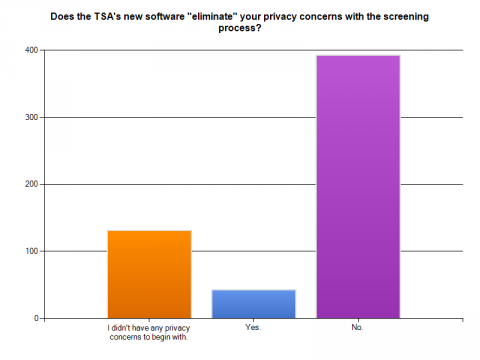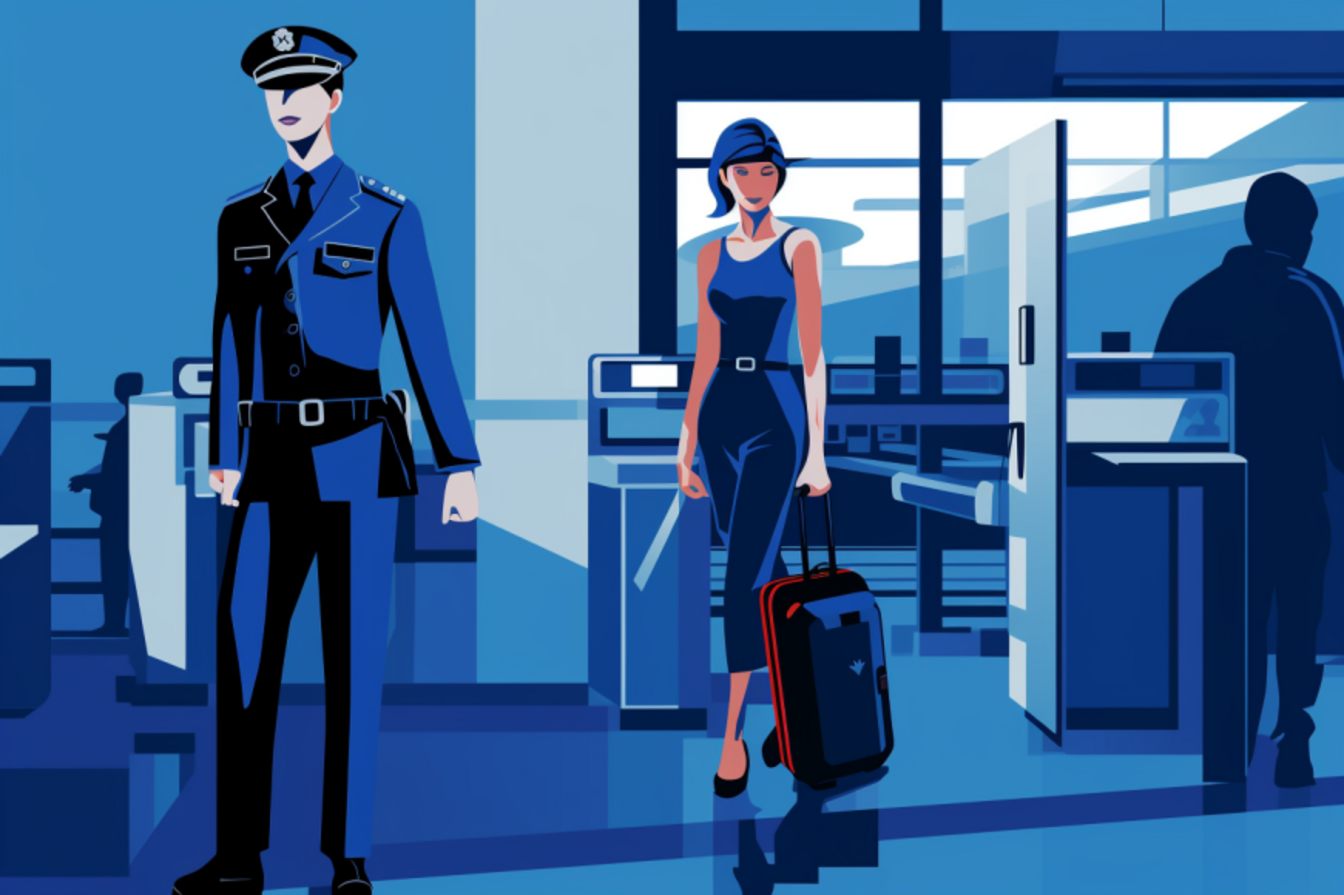The TSA is at it again. Earlier this week, it announced that in an effort to “enhance security while strengthening privacy protection” it had begun testing new scanning technology that doesn’t show screeners naked images of passengers.
But that is not why I’m writing about the beleaguered federal agency again. I promised you, dear reader, that I would pace myself with these TSA posts, and I am trying. It’s been five days since my last one.
It seems we’re at it, too. Just as the government made a big splash with its new scanning technology announcement (and we had the usual cast of critics and apologists trading insults, which was disappointing) so, too, have passengers and their advocates made some important — yet largely unreported — progress.
New scanners are actually a software upgrade
Before we get to that, a few words about the “new” scanners, which are actually just a software upgrade. The application is being used in existing scanners at Las Vegas McCarran International Airport and will be loaded into machines at Hartsfield Jackson Atlanta International and Ronald Reagan Washington National Airport in “the very near future,” according to the agency.
In a blog post accompanying the announcement, the TSA claims that only a “small percentage of travelers have had privacy concerns” with the screening process, and that this fix “eliminates” them. A certain percentage of travelers have concerns with the e-checks as well.
Passengers are worried about radiation from the scanners
That’s an interesting perspective. I wonder what the tens of thousands of passengers who are subjected to a physical pat-down would have to say about that. What’s more, I wonder how that flies with the passengers who are worried about radiation from those scanners?
Regardless, I think the agency is a little oblivious to the big picture. Passengers are resisting the TSA’s scanning fetish — and they’re winning. Since the pat-down brouhaha last October, I’ve spoken with many air travelers who say they’ve simply stopped flying because of the agency’s invasive new search techniques.
Today I have an update on one of them. In November I reported that Sommer Gentry had asked for, and was promised, a refund on an AirTran ticket. It turns out that what AirTran said and what it meant were two different things.
Travelers are refusing to fly until the TSA stops invading privacy
The airline would only offer her a voucher for a future flight, which didn’t really help. She refuses to fly until the TSA stops invading her privacy. She had an almost-identical dispute with Southwest Airlines.
“I demanded a refund in writing, on the phone, and in person at the check-in desk at the airport on the day of my scheduled flight,” she says. “Every time I was refused, even though in my reading of their contract of carriage, the airline will refuse to transport me and should give me a refund when I refuse security screening.”
Gentry wrote to the Transportation Department and disputed the tickets on her credit card.
“I got my refund,” she says.
And here’s another small but important victory for passengers. Last week, the TSA announced it had frozen its Screening Partnership Program, which allowed airports to privatize their security. Privately-run airport security is thought to be more customer-friendly and less intrusive.
My colleague Steven Frischling correctly pointed out that the move could violate the law. Well, now one Missouri senator is making sure of it.
Sen. Roy Blunt has introduced a measure that would require the TSA to use private security screeners if local airport officials don’t want government employees staffing the metal detectors and patting down people. (Read here how to handle the TSA when you travel.)
It’s clear that many air travelers want the TSA to stop touching and scanning them. They won’t be happy until the agency unplugs every advanced imaging machine and sends it to the junkyard. I can certainly understand that point of view.
What do you think? Does the new software “eliminate” your privacy concerns?
Survey says … no.





